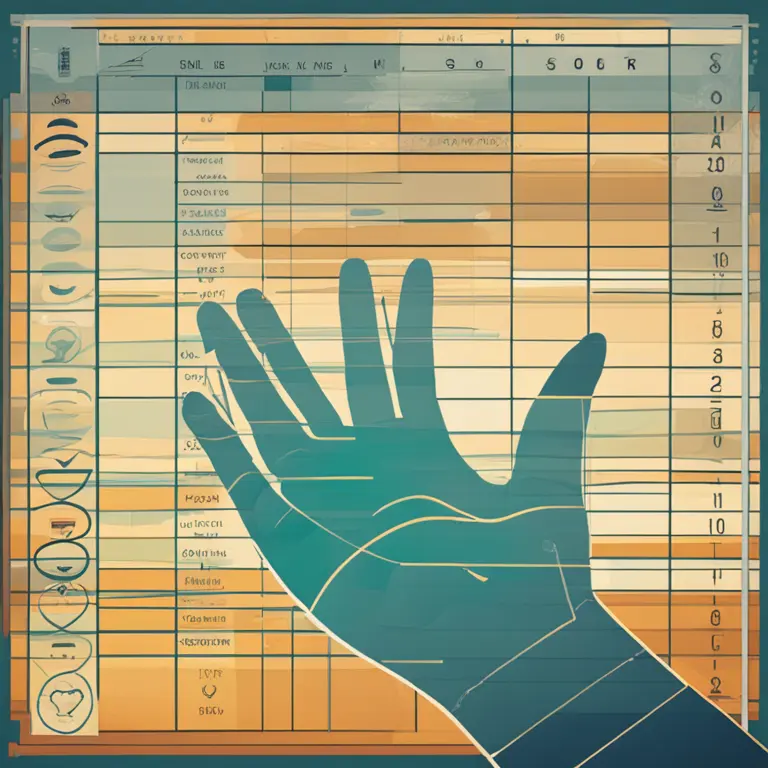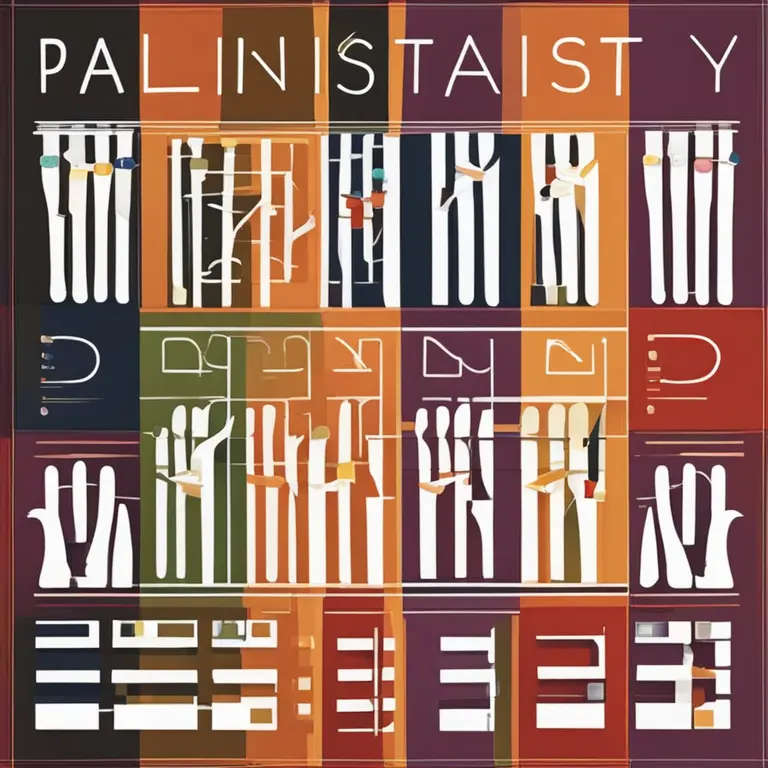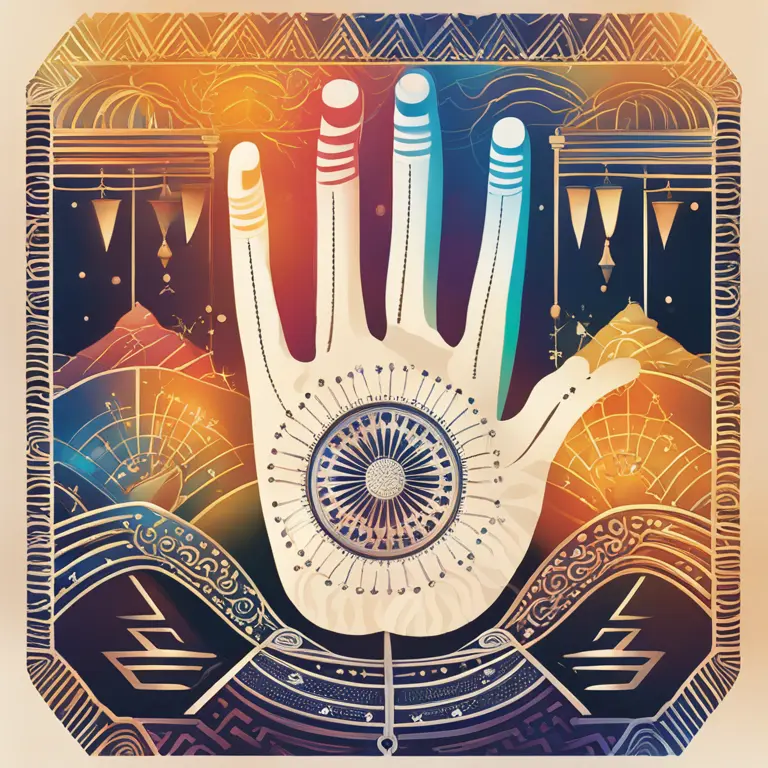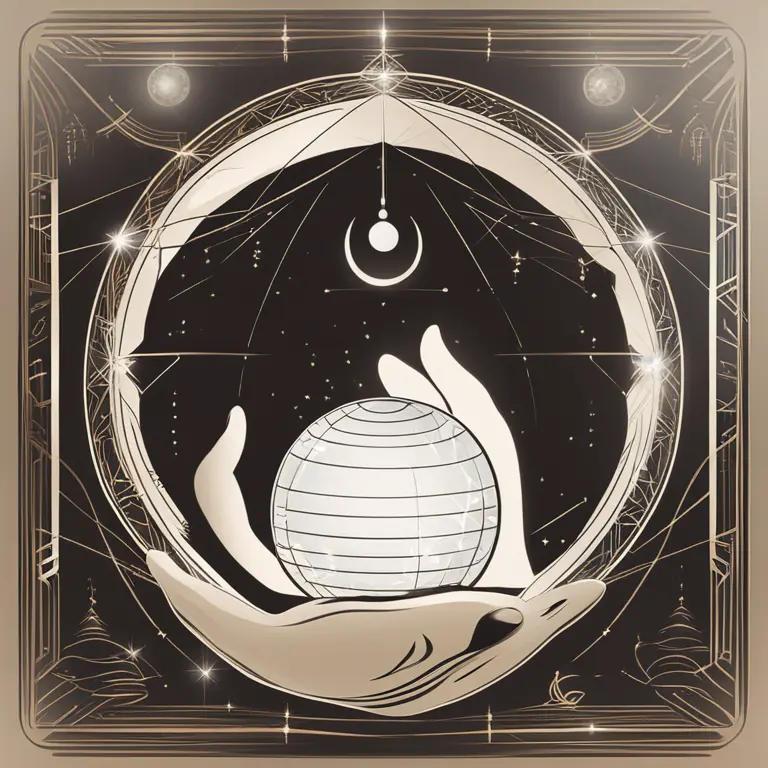
The Essentials of Palmistry: A Guide to Hand Analysis
Learn the foundational rules of palmistry and how hand analysis can offer insights into personality and destiny.
article by Nora Pennington
Introduction to Palmistry
Palmistry, also known as chiromancy, is an ancient practice that interprets the lines and structures of the hand to reveal individual characteristics and life paths. Originating from various cultural traditions, palmistry has evolved over millennia into a nuanced form of personal analysis. Despite its historical roots, the art remains popular today, reflecting contemporary understandings of psychology and human behavior as we continue into 2024 and beyond.

Major Lines in Palmistry
The palm displays three major lines that are central to most palm readings: the heart line, the head line, and the life line. The heart line represents emotions and relationships. A deep, unbroken line suggests a stable emotional life, while breaks can indicate emotional turmoil. The head line signifies intellect and reasoning, with a clear line denoting focus and a wavering line suggesting a versatile thinker. The life line, often misunderstood as a predictor of lifespan, actually reflects vitality and life changes.

Minor Lines and Their Meanings
Beyond the major lines, several minor lines contribute to a comprehensive palm reading. The fate line, if present, relates to life's direction and successes. The sun line points to fame and glory, while the mercury line influences communication skills. These lines can vary greatly among individuals and might not appear on every hand, presenting a unique narrative for each person.

The Significance of Hand Shapes
The shape of the hand is another critical aspect of palmistry. Earth hands are broad with square palms, indicative of practicality and reliability. Air hands feature square or rectangular palms with long fingers, often linked to intellect and sociability. Water hands are characterized by long palms and long fingers, denoting creativity and emotionality. Fire hands have short fingers and square or rectangular palms, reflecting enthusiasm and leadership traits.

Mounts and Their Interpretations
The mounts of the palm, named after celestial bodies, offer further personality insights. The Mount of Venus, located at the base of the thumb, relates to love and desire. The Mount of Mars, which includes the inner and outer Mars areas, connects to courage and aggression. Each mount, when examined for its prominence and development, adds layers to the reading, creating a richer profile of the individual.
The Significance of Finger Analysis
Fingers and finger segments, or phalanges, also hold significance in palmistry. Long fingers may suggest detail-orientation, while short fingers could denote a more big-picture perspective. The thumb, in particular, represents willpower and logic in its two main segments. Additionally, fingernails, their shape, and condition give clues about an individual's health and disposition.
Fusing Palmistry With Contemporary Approaches
As palmistry progresses into 2024, practitioners often combine traditional interpretations with modern psychological understandings. Recognizing patterns in a client's past decisions and current tendencies enables a more personalized reading. Advances in psychological research continually inform these interpretations, allowing for a blend of ancient wisdom and modern knowledge.
Published: 1/11/2024
Modified: 1/12/2024
More predictions
Come back here soon to learn more about yourself and your future


The Essence of Palmistry: Interpreting Lines and Shapes
Delve into the world of palmistry to discover the meanings behind the lines and shapes etched into the palms of your hands.


The Efficacy of Palmistry: Real Insight or Fancy?
Delve into the validity of palmistry as a form of divination. Is there a truth behind the lines on our palms, or is it just a charming fancy?


The Ancient Art of Vedic Palmistry
Discover the ancient art of Vedic Palmistry and its practice in the modern era, revealing the secrets held within the lines of the hand.